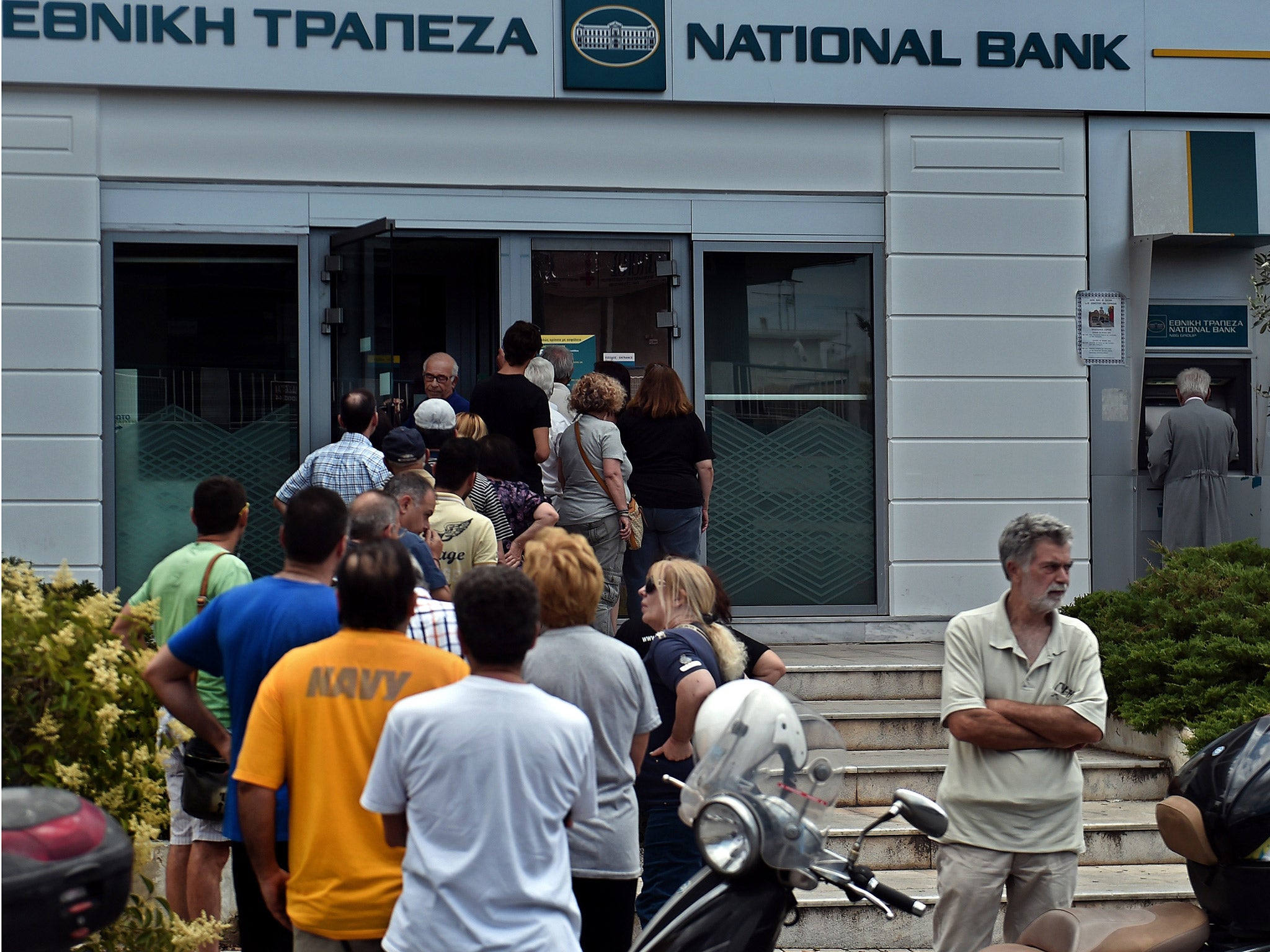Greece debt crisis: Greek banks kept dangling as ECB keeps up the squeeze
Frankfurt fails to ease access to emergency lending despite Brussels deal

Greek’s tottering banks were kept under the cosh by the European Central Bank, despite the widespread market relief in the wake of the dawn Brussels deal between Athens and its creditors.
The Frankfurt-based central bank refused to widen access to its Emergency Liquidity Assistance (ELA) facility on Monday even though there was a diplomatic breakthrough in Brussels. Greek banks are rapidly running out of money and savings withdrawals by the public have been rationed to €60 (£43) per person per day for the past fortnight.
Analysts said the ECB would probably ease the pressure on Greece’s banks only after the country’s parliament passed the economic reform laws required by creditors. That leaves the fate of the country’s financial system resting on a series of votes tomorrow in the Greek parliament.
Some €60bn of household and business deposits are estimated to have fled the Greek banking system since last October, forcing the banks to tap the ECB for emergency liquidity support. But access to that funding was capped at €89bn after the Greek government announced it was holding a referendum on whether to accept the demands of creditors. That has forced Athens to curb cash withdrawals in order to prevent the banks going bust.
Yet the Greek banking system is now also acknowledged to have a solvency as well as a liquidity crisis. Monday’s Brussels agreement accepted the need to recapitalise Greek banks with up to €25bn of bailout funds. But Raoul Ruparel of the Open Europe think-tank warned against any delay in delivering this. “A crucial question remains over the solvency of Greek banks since any recapitalisation will not happen immediately… There remains the threat of a bank collapse” he said.
Some analysts also warned that depositors with more than €100,000 in their accounts could yet find themselves forced to contribute to the recapitalisation of the sector. “The possibility of depositor bail-in cannot be ruled out given the directive’s provision,” said George Saravelos of Deutsche Bank.
Greece is due to redeem €3.5bn in sovereign bonds held by the ECB on 20 July. Failure to pay would prompt the ECB to cut off access to emergency liquidity support entirely, which would collapse the banks. Athens has already defaulted on a €1.5bn IMF loan this month and does not have the funds to pay the ECB next Monday. There is little chance the new Greek bailout will be concluded in time, which is why Greece will need some form of bridge funding over the next few days in order to enable it to pay its debts.
The ECB is due to perform a comprehensive assessment of the solvency of Greek banks later this year. Some 40 per cent of the capital of Greece’s four big lenders (€9bn) is anticipated to be made up of low-quality “tax assets” that need replacing. They also had about €34bn of uncovered bad loans at the end of the first quarter – a situation that is likely to have worsened since March as the recession has intensified.
Whatever happens with the ECB this week, analysts predicted that depositors would still be unable to withdraw cash freely for some time. “We estimate capital controls will have to remain in place for a prolonged period even if the agreement is ratified by the Greek and other national parliaments” said Diego Iscaro, senior economist at IHS.
Join our commenting forum
Join thought-provoking conversations, follow other Independent readers and see their replies
Comments
Bookmark popover
Removed from bookmarks